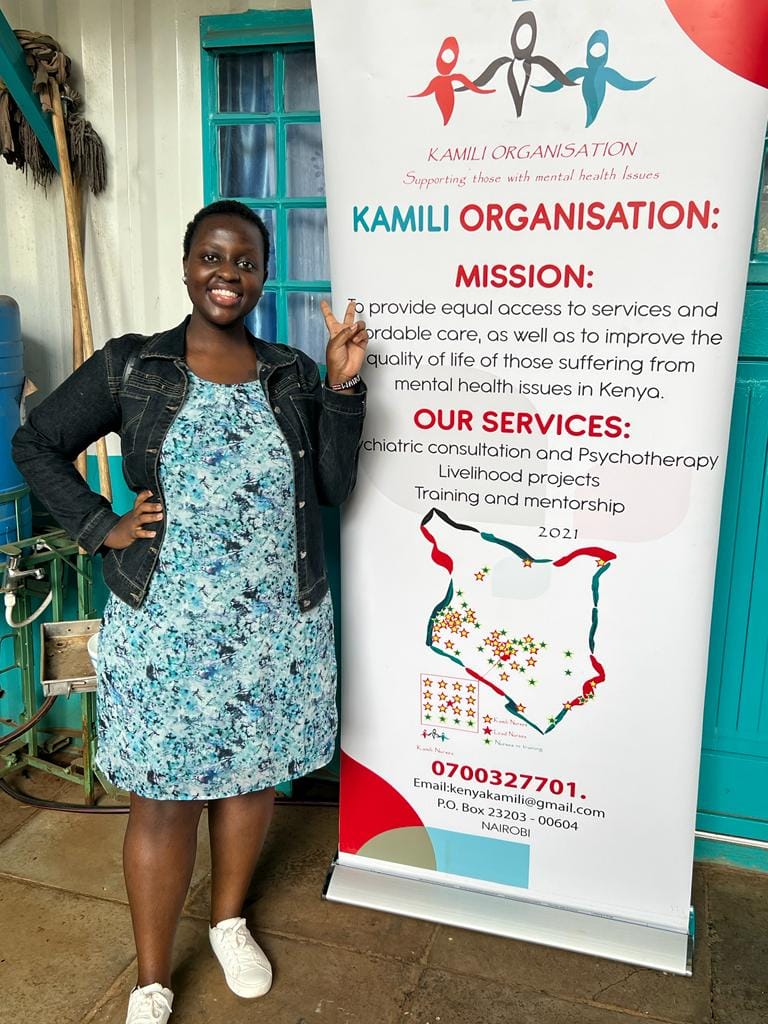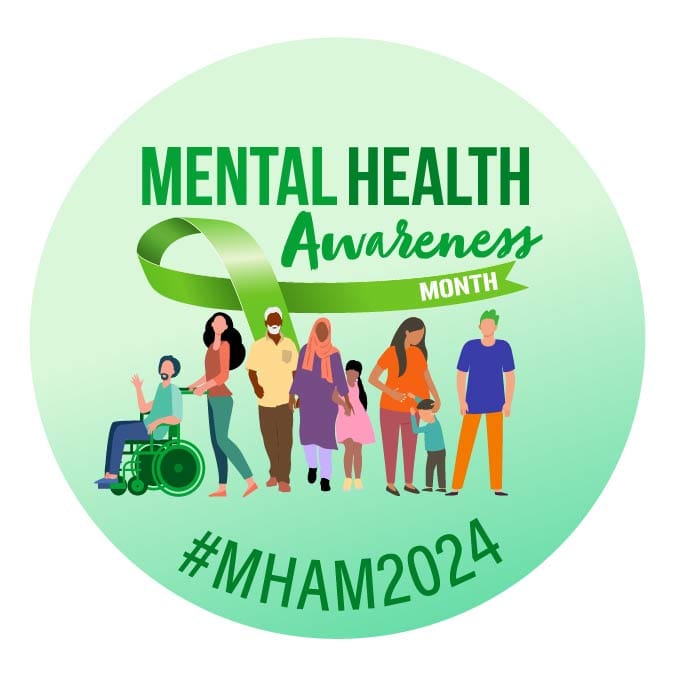Ask these 4 questions before taking psychiatric medications
"When completing a long climb one first experiences dizziness, disorientation and shortness of breath due to the high altitude. But once you become accustomed to the climb, your mind opens up to the tranquillity of the triumph" - Chadwick Boseman.
I've managed mental illness for many years now and looking back on treatment approaches, I believe some should have been adjusted sooner to complement my life goals. Here, in our Waiting Room, my goal is to centre patient experiences while teaching you how to collaborate on your treatment with your medical team.
Here are the main stories in mental health this week:
- Clinicians to stop work at Mathari and National Spinal Injury hospitals
- Millaz Theatre Company explores timely mental health issues
- Teenage mother pursues education amidst post-partum stress
In this week's edition:
TRUE STORY: Explained by Dr Tracey Marks & I - Bipolar Disorder
NEWS: Top 3 stories in mental health this week
TRIAGE: Before taking psychiatric medications ask this
PAUSE: Mental Health Month
QUICK: Other stories in mental health this week
REGION: Top mental health stories across the region
ACTIVISM: Worth the fight
TRUE STORY
Explained by Dr Tracey Marks & I: Bipolar disorder

On 4th August 2020, I received a bipolar disorder diagnosis and became a student of the condition and my symptoms. Dr Tracey Marks' video on bipolar disorder was a huge part of those early days and here's some of her expertise paired with my lived experience.
Bipolar disorder features two mood states; depressive and hypomanic/manic episodes. I live with bipolar II disorder so I cycle between hypomania and longer more chronic depressive episodes.
What happens?
Some of my depressive symptoms in the past:
- Noticeably low appetite, low energy and persistent crying spells for more than two weeks.
- Feelings of hopelessness around the situation that triggered the low mood which spills into other unrelated parts of my life.
- Persistent intrusive thoughts can evolve into suicide ideation. For me, it feels like acute physical pain in the mind which can only end if I end things.
Some of my hypomanic symptoms in the past:
- Racing thoughts – a continuous stream of thoughts that is harder to stop until it ends with a mental crash.
- Pressured speech – related to racing thoughts, fast-talking without a pause button to get as much information out of my brain as possible.
- Unusually higher energy levels make it harder to stay asleep for more than three hours a night.
Different humans with different interests live with the same illness. Look out for how frequent and disruptive these symptoms are to what you consider a stable life. Also, factor in environmental changes that change how you experience symptoms over time.
Person vs illness
I'm a high performer who works on multiple projects that I enjoy - this supports my stability and provides a source of hope during depressive episodes. It's easy to reduce my ambitious lifestyle to hypomania or any inkling of prolonged sadness to depression, both in need of immediate medication changes.
However, pursuing goals adds structure to my life and allows me to keep seeing what I'm capable of despite my diagnosis. For instance, I couldn't always work and study; I took a long semester break in 2020 to get treatment so I could successfully graduate in 2021. Fast forward to 2024, I've been working and studying for the last nine months to become a Gender Equity Practioner. This has created a new baseline for what I consider stability for me.
What is your baseline? Keep reevaluating what you categorise as symptoms and finding management techniques for related symptoms.
NEWS
The week's top stories
- Clinicians to stop work at Mathari and spinal hospitals: What started as a stop-gap measure for Kenya's doctor shortage could leave clinical officers with no clear career progression and poor pay. They are demanding enhanced risk allowances of Sh15,000, restoration of Sh105,000 monthly stipend for degree clinical officer interns, which had been reduced to Sh50,000, and comprehensive medical insurance. Mathari is the largest mental health facility in Kenya so many patients are set to suffer during the strike.
- Millaz Theatre Company explores timely mental health issues: In honour of Mental Health Month, the playwright in residence, Saumu Combo volunteered to script a play called Backstreet Edition 2. This play has everything; death, grief, alcoholism, suicide ideation and strained relationships all happening among a group of friends navigating childhood into early adulthood. This is a good attempt at depicting the interconnected nature of symptoms and environmental factors.
- A teenage mother pursues education amidst post-partum stress: Pregnant at 19, Veronica Mwende, gave birth in her first year at university and had to leave her child behind. She started counselling where she met other teen moms and is currently leading a petition urging tertiary institutions to admit and provide comprehensive care to teen mothers. "Many teen moms don't have access to contraceptives and sexual reproductive health information." With 70 out of 2,000 signatures, she aims to present her petition to the ministries of education and health for action. Be the change you wish to see; now is the best time to start.
PAUSE

TRIAGE
Before taking psychiatric medications ask this

It takes a lot of self-reflection to seek out a psychiatrist. It's especially vulnerable to do so when experiencing symptoms because your opinions may be dismissed as symptoms - I've experienced this first-hand. Mental illness doesn't mean incompetence or total lack of self-awareness. You've lived inside your mind and body all these years and are the biggest authority on what works for you so it's a collaborative effort.
One of the main types of treatment for bipolar disorder is medication but unlike treating flu, taking psychiatric medications can quickly turn into a lifetime commitment. Here's your reminder that you're in charge of your health and are free to seek clarity on this life-changing decision.
4 questions 4 your doctor
When considering taking medication, ask your doctor the following questions:
- What symptoms are you seeing that you believe each medication you prescribe will manage so I know what to monitor?
- Do I need medication to manage those symptoms or are there non-medication strategies we can start with?
- Are you open to listening to how I've been managing the symptoms you've mentioned without medication?
- How can I manage medication side effects and after how long can I start to see symptoms improving?
It took ten years to get a clear diagnosis although I first saw a counsellor when I was 16 just as symptoms showed up. When I finally saw a psychiatrist in 2020, targeted questions helped me collaborate on treatment options, a crucial skill I'm still using to advocate for myself because it never stops. I'll share more questions in future editions so that you hopefully spend less time pacing in the waiting room and seeing actual improvements in your life away from the hospital.
QUICK
One-liners
- Bipolar disorder: Are your mood swings a sign of mental illness?
- Nation's Zachary Nyakweba covers post-partum depression to win the Wangari Maathai Young Journalists Award
- What you need to know about mental health
- Teachers accuse TSC of neglecting mental health
REGION
Mental Health in Africa
[RW]: Recovering from drug abuse is possible – former addicts: Sandrine Uwase was once addicted to drugs but has recovered and is working hard to improve her life and help other youths recover. “My father died and my mother left me alone at home. I was living a lonely and hopeless life. I realized that drug abuse worsens personal problems. I am also writing a 25-page book on my recovery journey." [Read]
[UG] Championing access to mental health care is crucial: In Uganda, 35% of the population suffers from mental illness with 15% of the 45.85 million requiring treatment. World Mental Health Week is celebrated annually in May and 2024's theme, #NoMindLeftBehind, underscores the significance of universal access to mental health support and services. [Read]
[TZ] Stakeholders call for unified approach to tackle NCDs crisis: Non-communicable diseases (NCDs) are a growing threat in Tanzania, accounting for nearly 34% of all deaths. Dr Heri Marwa, PharmAces cardiovascular county director said, "Training staff and community health workers to attend to patients is very important to help fight the challenge." [Read]
[SA] Celebrate, remember and reframe - the therapy sessions healing South Africa’s women: Every Wednesday, 30 women meet for an hour in an eight-week group counselling programme helping participants reframe trauma as stories of survival and strength. Thanks to Ncazelo Ncube-Mlilo, a Zimbabwean psychologist who has dedicated her career to developing “culturally sensitive” therapeutic tools. [Read]
ACTIVISM
Worth the fight
One: This newsletter opens with a quote from Chadwick Boseman's 2018 graduation speech at Howard University. Wonder how to weave activism into everything you do? This is a masterclass I constantly refer to.
Two: Music is an essential part of my activism toolkit and this song has helped me grow through adversity. Think of yourself as an athlete and pursuing justice like a game you're constantly perfecting - but you need to start and keep playing.
"There's heaven in winning and hell in not trying"
That's it from me. I've shared my story in different spaces over the last three years and it's still just as nerve-wracking. Yet, I hope it does the same thing each time - helps you feel seen and heard. Let me know what you think.
Receive This Weekly | Buy Me a Coffee | Feedback | Follow My Insta
